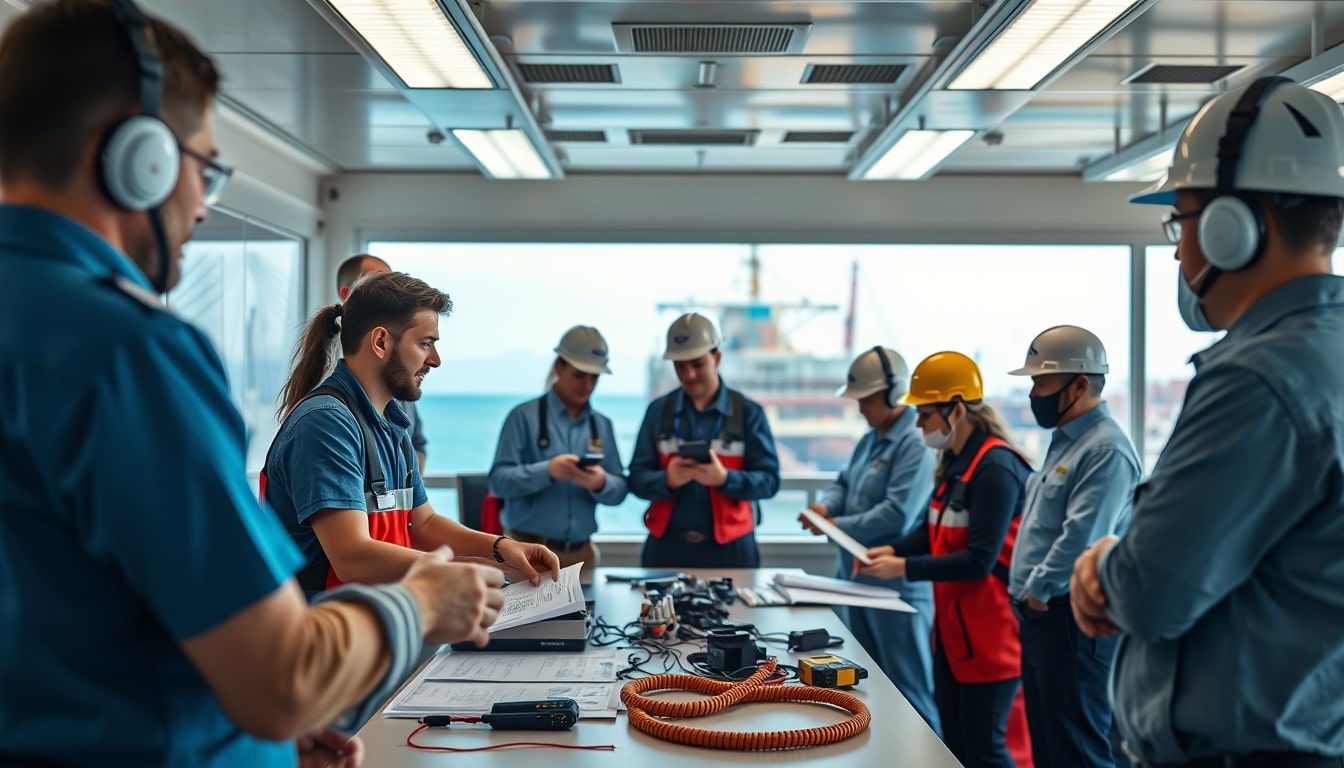In today’s ever-evolving maritime sector, ensuring safety and security is more critical than ever. At Virtual Maritime Academy, we are proud to be a DNV Certified Maritime Training Provider, offering top-tier training to professionals in the maritime industry. One of our flagship courses is the PFSO/MFSO Online Course, designed for those looking to become proficient in the roles of Port Facility Security Officer (PFSO) and Marine Facility Security Officer (MFSO). In this article, we will guide you through the entire process—From Enrollment to Certification: Navigating Our PFSO/MFSO Online Course—making it easier for you to understand how to elevate your maritime career with us.
Learn More about our PFSO/MFSO Course!
Key Takeaways
- The PFSO/MFSO course structure includes comprehensive modules designed for ease of understanding.
- Enrollment is a straightforward process that can be completed in just a few steps.
- The course content covers key topics essential for PFSO/MFSO certification and professional development.
- Learning objectives are clearly defined to ensure participants meet industry standards.
- Certification requires passing assessments that verify knowledge and understanding of the course material.
Understanding the PFSO/MFSO Course Structure
The journey to becoming a proficient Port Facility Security Officer (PFSO) or Marine Facility Security Officer (MFSO) begins with a detailed understanding of the course structure offered by the Virtual Maritime Academy, a DNV Certified Maritime Training Provider. From enrollment to certification, navigating our PFSO/MFSO online course is designed to be seamless and informative. This course encompasses comprehensive modules that cover critical aspects of maritime security, including threat assessment, security planning, and crisis management. Each module is crafted to build upon the previous one, ensuring that learners not only grasp theoretical concepts but also develop practical skills applicable to real-world scenarios. As participants progress through the course, they benefit from interactive learning tools, quizzes, and case studies that reinforce their understanding. Upon successful completion, attendees receive a DNV Certified certificate, validating their expertise in maritime facility security protocols. This recognition from a reputable authority not only enhances their professional credentials but also boosts career opportunities within the maritime industry.
Step-by-Step Enrollment Process
Navigating the enrollment process for our PFSO (Port Facility Security Officer) / MFSO (Marine Facility Security Officer) Online Course at the Virtual Maritime Academy has never been easier. As a DNV Certified Maritime Training Provider, we ensure that our courses, including the PFSO Course, meet the highest safety and quality standards necessary for maritime professionals. Step one begins with visiting our user-friendly website where you can explore detailed course descriptions and prerequisites. Next, simply click on the enrollment link corresponding to the PFSO/MFSO Online Course. Once you’ve filled out the registration form with your information, it’s crucial to review the course terms and conditions. After successful submission, you will receive a confirmation email with your login details. Now, you can begin your training at your own pace! Complete the course modules, engage with interactive content, and assess your knowledge through quizzes. Once you finish, you’ll be eligible to take the certification exam. Upon passing, you’ll proudly receive your certification, indicating your accomplishment as a qualified Port Facility Security Officer. By following this step-by-step process, you’ll transition seamlessly from enrollment to certification, equipping you with essential maritime security knowledge.
Learn More about our PFSO/MFSO Course!
Course Content and Learning Objectives
The PFSO (Port Facility Security Officer) course offered by Virtual Maritime Academy is meticulously designed to guide participants through the essential aspects of port facility security management. From enrollment to certification, navigating our PFSO/MFSO online course provides a comprehensive understanding of security protocols, risk assessment strategies, and compliance with international standards. Throughout the course, participants engage with interactive content that covers key topics such as maritime security threats, the roles and responsibilities of a PFSO, and the development of security plans tailored to specific port facilities. Our DNV Certified Maritime Training Provider status ensures that learners benefit from a curriculum backed by industry expertise and rigorous standards. By the end of the course, participants will not only enhance their knowledge but also gain the practical skills necessary to effectively coordinate security measures in a maritime environment, securing their credentials and enhancing their career prospects in the ever-evolving maritime industry.
Certification Pathway and Requirements
Navigating our PFSO/MFSO online course at Virtual Maritime Academy is a seamless journey designed for those aspiring to excel in maritime safety and security. Our DNV Certified Maritime Training Provider status ensures that the training you receive meets the highest international standards. From enrollment to certification, participants will find an easy-to-follow pathway that includes comprehensive modules covering critical aspects of the Port Facility Security Officer (PFSO) and the Marine Facility Security Officer (MFSO) roles. Each course is meticulously designed to equip you with the necessary knowledge and skills, starting with the enrollment process, where you will receive all details related to course objectives and requirements. Upon completion of the modules, a final assessment evaluates your understanding, leading to your certification upon passing. This structured approach guarantees you not only learn the theory but also understand its practical applications, making you a qualified professional ready to tackle real-world challenges in maritime security.











